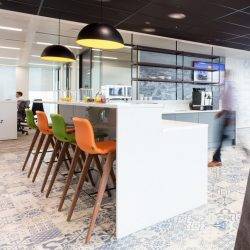March 27, 2018
New ruling means Australian workers will get five days of unpaid domestic violence leave
 The Australian Fair Work Commission has ruled that all employees, including part time and temporary staff, will be entitled to five days of unpaid leave if they are affected by family or domestic violence, if they “need to do something to deal with the impact of family and domestic violence and it is impractical for them to do this outside of their ordinary hours of work”. The Fair Work Commission said that over the past year it had held a number of consultations to help it consider the most appropriate and balanced term for the new domestic violence leave entitlement. The Australian Council of Trade Unions (ACTU) had suggested a number of possible models to the Commission, including the provision of 10 days of paid domestic violence leave for all employees. However, the Commission confirmed this week that a standard of five days leave is a “fair and relevant safety net entitlement”, adding that it has taken a “cautious regulatory response to this issue.”
The Australian Fair Work Commission has ruled that all employees, including part time and temporary staff, will be entitled to five days of unpaid leave if they are affected by family or domestic violence, if they “need to do something to deal with the impact of family and domestic violence and it is impractical for them to do this outside of their ordinary hours of work”. The Fair Work Commission said that over the past year it had held a number of consultations to help it consider the most appropriate and balanced term for the new domestic violence leave entitlement. The Australian Council of Trade Unions (ACTU) had suggested a number of possible models to the Commission, including the provision of 10 days of paid domestic violence leave for all employees. However, the Commission confirmed this week that a standard of five days leave is a “fair and relevant safety net entitlement”, adding that it has taken a “cautious regulatory response to this issue.”

















 Over a third of workers are adversely affected by a lack of natural light in their office, others complain that the lighting is too bright and a significant proportion say the quality of light provided is so weak they struggle to read. This is according to a new poll which quizzed employees about the difficulties associated with workplace lighting and found that headaches and dizziness were a problem for one in seven. Other employees reported finding the lighting too bright and dazzling (12.4 percent), while one in 10 said they had to strain their eyes due to a general lack of light. A similar proportion said they were bothered by the position of the lights and by the ‘stressful environment’ created by their workplace lighting (9.3 percent each). The findings come as reports of ‘sick building syndrome’ — a condition associated with office work that causes symptoms including headaches and respiratory problems — continue to hit the headlines. Such symptoms are usually attributed to unhealthy or stressful elements of the working environment, such as poor ventilation and lighting.
Over a third of workers are adversely affected by a lack of natural light in their office, others complain that the lighting is too bright and a significant proportion say the quality of light provided is so weak they struggle to read. This is according to a new poll which quizzed employees about the difficulties associated with workplace lighting and found that headaches and dizziness were a problem for one in seven. Other employees reported finding the lighting too bright and dazzling (12.4 percent), while one in 10 said they had to strain their eyes due to a general lack of light. A similar proportion said they were bothered by the position of the lights and by the ‘stressful environment’ created by their workplace lighting (9.3 percent each). The findings come as reports of ‘sick building syndrome’ — a condition associated with office work that causes symptoms including headaches and respiratory problems — continue to hit the headlines. Such symptoms are usually attributed to unhealthy or stressful elements of the working environment, such as poor ventilation and lighting.




 The mental health of employees, especially those working within high pressured working environments are the number one concerns for UK CEOs. Nearly three quarters (73 percent) of respondents to the annual wellbeing report ‘
The mental health of employees, especially those working within high pressured working environments are the number one concerns for UK CEOs. Nearly three quarters (73 percent) of respondents to the annual wellbeing report ‘









March 26, 2018
A growing number of employers are driving demand for independent professionals
by Adam Gates • Comment, Workplace
(more…)